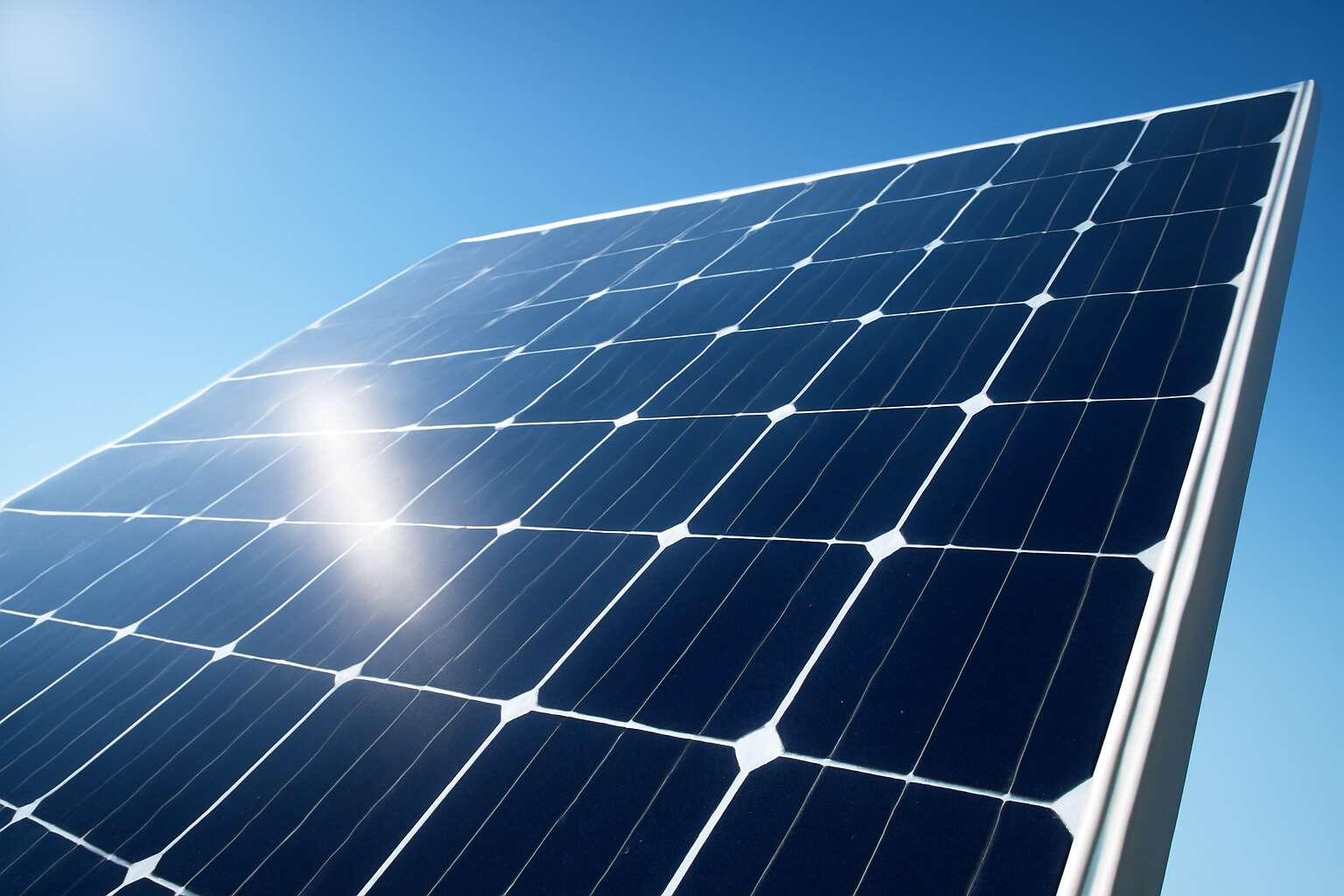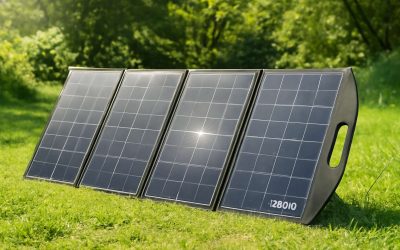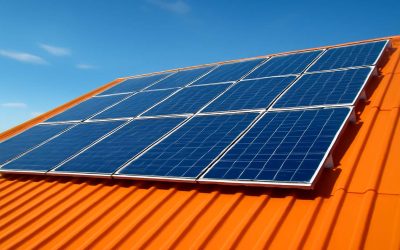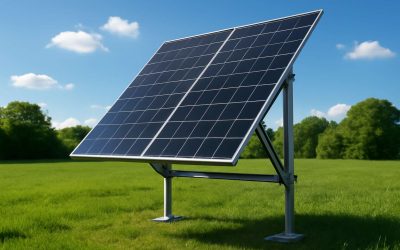Understanding Solar Power Systems
Overview of Solar Panels – Basics of how solar panels generate electricity
Solar power systems are a symphony of light and energy, transforming sunrays into a tangible force that powers our lives. When considering whether a solar panel can work without an inverter, it’s essential to grasp the fundamental mechanics of how solar panels generate electricity. At the core, solar panels harness sunlight through photovoltaic cells, creating direct current (DC) electricity—a raw, unrefined form of power that needs to be processed before it can illuminate our homes or run appliances.
In traditional setups, an inverter acts as the maestro, converting DC into alternating current (AC), which is compatible with the grid and household devices. However, some innovative configurations suggest that under specific conditions, solar panels might generate usable power without an inverter. This often involves direct applications, such as powering DC appliances or using specialized systems designed to operate with DC power directly. So, can solar panel work without inverter? The answer hinges on the system’s design and the intended application, revealing a world where sunlight’s potential is unlocked in diverse, fascinating ways.
Role of Inverters in Solar Systems – Function and importance of inverters in converting DC to AC
In the vast tapestry of solar energy, inverters are often regarded as the critical maestros orchestrating the flow of power, transforming raw sunlight into usable energy. Their role is pivotal—converting the direct current (DC) produced by solar panels into the alternating current (AC) that fuels our homes and industries. Without an inverter, the symphony of solar power can seem silent to the grid, yet there are intriguing exceptions that challenge this norm.
Understanding the role of inverters in solar systems reveals their importance in ensuring compatibility with the electrical grid and household appliances. They serve as the bridge, enabling seamless integration of solar-generated electricity into daily life. While most systems rely heavily on inverters, some specialized configurations allow solar panels to work without one—particularly when powering DC appliances or utilizing systems designed explicitly for direct current use.
- Powering DC devices directly from solar panels.
- Implementing off-grid systems where grid synchronization isn’t necessary.
- Using innovative storage solutions that accept DC input without conversion.
Such arrangements highlight that, under specific circumstances, solar panels can work without inverter, unlocking new realms of possibilities within solar energy applications in South Africa and beyond. It’s a captivating world where sunlight’s potential is harnessed in diverse, sometimes unexpected, ways—defying conventional boundaries and expanding the horizon of solar innovation.
Types of Solar Power Setups – Grid-tied, off-grid, hybrid systems
Solar power systems are as varied as the landscapes they inhabit, each designed to meet specific energy needs while respecting environmental constraints. In South Africa, where sunlight is abundant yet energy demands are rising, understanding the different types of solar setups is crucial. Among these, the fundamental distinction lies between grid-tied, off-grid, and hybrid systems—each with its unique approach to harnessing sunlight.
While most systems depend heavily on inverters to convert DC to AC for seamless integration into the grid, there are scenarios where can solar panel work without inverter. Off-grid systems, for example, often operate solely with DC power—powering DC appliances directly or storing energy in batteries without the need for conversion. This approach simplifies the system and reduces costs, especially in remote locations where grid access is scarce.
- Grid-tied systems rely on inverters to synchronize with the utility, making them less suitable for inverter-free operation.
- Off-grid setups can function independently, powering DC devices directly from solar panels and batteries.
- Hybrid systems combine elements, offering flexibility but still often depend on inverters for AC loads.
By exploring these configurations, it becomes clear that understanding whether can solar panel work without inverter hinges on the intended application and energy demands. In South Africa’s diverse landscape, embracing these nuances opens doors to innovative, resilient solar solutions—sometimes in ways that challenge conventional wisdom and redefine what’s possible with solar energy.
Can Solar Panels Generate Power Without an Inverter?
Direct Use of DC Power from Solar Panels – Scenarios where DC power is utilized directly
Imagine harnessing the raw power of the sun and using it directly—no middlemen, no conversions, just pure energy flowing from panel to device. While most assume that solar panels are useless without an inverter, the truth is that can solar panel work without inverter in certain scenarios. The secret lies in the direct use of DC power, which can be surprisingly effective for specific applications. This approach unlocks a world of possibilities for off-grid systems and remote locations where simplicity and reliability are paramount.
In these setups, solar panels feed DC power straight into devices designed to operate on direct current. For example, DC-powered water pumps, LED lighting, and small appliances can run seamlessly without the need for complex conversion. This method not only simplifies the system but also reduces energy losses associated with inverters. So, when might you ask, can solar panel work without inverter? The answer is when the end device accepts DC power—making it an elegant, efficient solution for certain solar applications in South Africa’s diverse landscape.
Limitations of Using Solar Panels Without Inverters – Voltage regulation, safety, and efficiency concerns
Many wonder, can solar panel work without inverter? The answer is yes, but with important limitations. Solar panels generate DC electricity, but most appliances and systems require AC power. Without an inverter, your options are limited to direct DC use. This works well for specific applications where devices are designed to operate on direct current.
However, using solar panels without inverter introduces several challenges. Voltage regulation becomes a concern, as DC output can fluctuate with sunlight intensity. Variations in voltage can damage sensitive equipment or reduce efficiency. Safety is another issue; DC power can pose shock hazards if not handled properly. Plus, the overall efficiency of the system drops if the setup isn’t carefully managed.
Because of these limitations, it’s essential to evaluate whether your intended use benefits from direct DC power. For instance, simple LED lighting or DC-powered water pumps are perfect candidates. But for more complex appliances, an inverter remains necessary. So, when asking if solar panels can work without inverter, consider the specific demands of your setup and the potential risks involved.
Specific Applications Favoring No Inverter – Off-grid DC applications, small-scale outdoor setups
In the realm of solar energy, an intriguing question often arises: can solar panel work without inverter? The answer is a nuanced yes—under specific circumstances. For off-grid DC applications, solar panels can indeed generate power without the need for an inverter, especially when the goal is to power devices designed to operate directly on DC current. This approach sidesteps many complexities, offering a simpler, more direct path to harnessing sunlight’s bounty.
Small-scale outdoor setups—such as portable solar chargers, LED lighting systems, or water pumps—are excellent candidates for this method. These devices are inherently compatible with the direct current produced by solar panels, making them ideal for off-grid living or remote locations where an inverter’s presence might be unnecessary or impractical. Such applications demonstrate that, with careful planning, the question of can solar panel work without inverter can be answered affirmatively in niche but vital scenarios.
Alternatives to Traditional Inverters
Microinverters – Advantages of microinverters in certain setups
In many off-grid applications across South Africa, the question arises: can solar panel work without inverter? Surprisingly, yes—under specific circumstances. Microinverters have emerged as a compelling alternative to traditional inverters, especially in setups where maximizing efficiency and simplifying installation are priorities.
Unlike conventional inverters, microinverters operate on a per-panel basis, converting DC to AC right at the source. This localized conversion reduces energy losses, which is vital in remote areas with limited infrastructure. For small-scale outdoor setups or off-grid DC applications, microinverters can sometimes eliminate the need for a central inverter altogether, making the system more resilient and easier to maintain.
- Enhanced reliability due to fewer points of failure
- Improved energy harvest from each panel
- Flexibility in system expansion and configuration
So, in scenarios where the system is designed for direct use of DC power or where safety concerns limit the use of inverters, microinverters present a practical solution. They demonstrate that, in the right context, solar panels can indeed work without inverter, challenging traditional assumptions about solar energy systems.
Charge Controllers and DC Loads – Using charge controllers for battery-based systems
In many off-grid South African applications, the question of whether a solar panel can work without inverter sparks curiosity. The answer isn’t a simple yes or no; it depends on the specific setup and energy needs. For battery-based systems, using charge controllers becomes an ingenious solution. These devices regulate voltage and current, ensuring batteries are charged efficiently without the need for a traditional inverter. This approach is particularly advantageous when direct DC power is sufficient for the load, sidestepping the losses associated with inverting energy.
Instead of a bulky inverter, a well-designed system might rely on DC loads that operate directly from solar panels. This setup is ideal for small-scale outdoor applications or remote off-grid locations where simplicity and durability are paramount. By eliminating the inverter, maintenance becomes easier and costs drop significantly. Sometimes, an ordered list of benefits highlights why this configuration is gaining popularity:
- Reduced energy losses during conversion
- Enhanced system reliability with fewer components
- Cost-effective solutions tailored for specific applications
While the notion of a solar panel working without an inverter is feasible in niche scenarios, it’s essential to understand the limitations—such as voltage regulation and safety concerns. Yet, in select circumstances, especially in battery-based systems with appropriate charge controllers, the answer to “can solar panel work without inverter” is a resounding yes, opening new avenues for sustainable energy in South Africa.
DC-to-DC Converters – Regulating voltage for DC devices
In the realm of solar energy, a fascinating question often arises: can solar panel work without inverter? The answer dances on the edge of possibility, especially in off-grid South African settings where simplicity and resilience are prized. While traditional setups rely heavily on inverters to convert DC to AC power, innovative alternatives emerge for those seeking a more streamlined approach.
One such alternative is the use of DC-to-DC converters, devices designed to regulate voltage levels for direct use by DC devices. These converters act as quiet arbiters, ensuring that the voltage remains within safe and efficient thresholds, allowing solar panels to power small appliances or LED lighting without the need for an inverter. This method not only preserves energy but also reduces complexity and maintenance costs.
In scenarios where direct DC power suffices—such as remote cabins, off-grid farms, or outdoor workshops—the question of can solar panel work without inverter becomes not just a theoretical curiosity but a practical reality. Microinverters and charge controllers work in harmony to harness the sun’s bounty, offering a symphony of efficiency with fewer components involved. The key lies in understanding the limitations and capabilities of these systems, ensuring safety and performance are not compromised in pursuit of simplicity.
Practical Considerations for Using Solar Panels Without Inverters
Safety Concerns – Risks of handling high DC voltage
In the realm of solar energy, a fascinating question persists: can solar panel work without inverter? While traditional setups rely heavily on inverters to convert direct current (DC) into usable alternating current (AC), some niche applications reveal a different story. Handling high DC voltage safely becomes the core concern when contemplating direct DC use. Without proper precautions, this approach can pose significant safety risks, especially in environments where untrained handling occurs. The peril of electric shock and fire hazards looms large if the high-voltage DC is not managed meticulously.
For those considering bypassing an inverter, understanding the specific applications that favor this approach is crucial. Off-grid systems for small-scale outdoor setups often utilize direct DC power, especially when connecting directly to DC loads such as LED lighting or small appliances. However, safety remains paramount. Proper insulation, protective devices, and voltage regulation are non-negotiable in these scenarios. The question remains—can solar panel work without inverter? Yes, but only in carefully controlled, low-voltage contexts where safety protocols are strictly observed.
Efficiency and Power Losses – Impact on energy output
Solar energy’s potential to revolutionize power generation is undeniable, yet the question persists: can solar panel work without inverter? While traditional solar systems rely on inverters to transform direct current (DC) into the alternating current (AC) needed for most appliances, some niche applications challenge this norm. When considering direct DC use, efficiency and power losses become critical factors. Without proper management, these losses can significantly diminish energy output, making it less viable for larger or more complex setups. In essence, the raw energy produced by solar panels may be substantial, but if it isn’t efficiently harnessed, the benefits are lost in translation.
Efficiency drops are inevitable when bypassing the inverter, especially if voltage regulation and wiring are not meticulously optimized. For small-scale, off-grid applications—such as powering LED lighting or small DC loads—using solar panels without inverter can work, provided that the system is designed with precision. An understanding of the specific power needs, along with the integration of charge controllers or DC-to-DC converters, enhances overall efficiency. Ultimately, whether or not a solar panel can work without inverter hinges on the application’s scale and safety protocols. When managed correctly, direct DC use can be a practical solution for certain South African off-grid communities seeking energy independence without the complexity of traditional inverters.
Legal and Regulatory Aspects – Compliance with local standards and regulations
In South Africa’s sun-drenched landscapes, the allure of harnessing solar power directly from panels sparks curiosity and innovation. But a vital question emerges—can solar panel work without inverter? The answer hinges on a complex interplay of legal, safety, and technical considerations that demand careful navigation. With the rise of off-grid communities seeking energy independence, understanding the regulatory framework becomes paramount.
Legal and regulatory aspects form the bedrock of safe and compliant solar installations. Local standards often specify requirements for direct current (DC) systems, especially when bypassing traditional inverters. It is essential to verify whether such setups align with national electrical codes and standards outlined by authorities like the South African Bureau of Standards (SABS). Non-compliance can lead to safety hazards and potential legal repercussions, emphasizing the importance of thorough adherence.
Furthermore, some jurisdictions may impose restrictions on using solar panels without inverter, particularly in grid-tied systems. However, for small-scale, off-grid applications—such as powering LED lights or small appliances—direct use of DC power can be legally permissible if proper safety measures are observed. An orderly approach involves:
- Securing necessary permits
- Adhering to safety protocols for high DC voltage handling
- Employing certified charge controllers or DC-to-DC converters to mitigate risks
Understanding the specific legal landscape not only ensures safety but also maximizes the potential of solar energy in South Africa’s diverse settings, proving that sometimes, the path less traveled—like using solar panel work without inverter—can indeed be a viable and compliant route to energy autonomy.
Real-World Examples and Use Cases
Remote Cabins and Off-Grid Locations – Implementing DC systems without inverters
Imagine a remote South African cabin nestled deep in the wilderness, miles away from the nearest power grid. In such off-grid locations, can solar panel work without inverter? Absolutely! Certain setups leverage direct current (DC) power generated by solar panels, bypassing the need for an inverter altogether. This is particularly true in small-scale applications where simplicity reigns supreme. For example, some off-grid cabins utilize DC-powered lighting and appliances that are specifically designed to run directly off solar panels. This not only reduces complexity but also minimizes potential points of failure.
In these scenarios, using a dedicated charge controller or a DC-to-DC converter ensures voltage regulation and efficient energy transfer. For instance, solar-powered water pumps or refrigeration units often operate efficiently without an inverter, provided their power requirements are met directly from the solar array. The key is understanding that can solar panel work without inverter depends heavily on the specific energy needs and the type of devices used. When designed thoughtfully, these systems can be surprisingly effective, even in the challenging environments of South Africa’s more remote locations.
Solar-Powered Devices and Gadgets – Direct powering of low-voltage DC devices
In remote South African locations, where grid access is scarce, the question often arises: can solar panel work without inverter? The answer is yes, especially for low-voltage DC devices. Many off-grid setups rely solely on direct current (DC) power, eliminating the need for an inverter. This approach simplifies systems, reduces costs, and minimizes potential points of failure.
Some practical examples include solar-powered water pumps, LED lighting, and small appliances designed to operate directly off DC power. These devices are tailored to match the voltage and current generated by the solar panels, making them highly efficient without an inverter.
Using charge controllers or DC-to-DC converters ensures voltage is regulated, safeguarding equipment and optimizing energy transfer. For applications like microgrids or small cabins, this method offers a reliable, straightforward energy solution—proving that, in many cases, can solar panel work without inverter is not just possible but practical.
Off-Grid Battery Storage Systems – Integrating solar panels without inverters
In remote South African landscapes where the sun reigns supreme, the question often arises: can solar panel work without inverter? The answer is a resounding yes—especially when powering low-voltage DC devices. This approach transforms the way off-grid systems operate, offering a simpler, more resilient alternative to traditional setups.
Imagine a small cabin nestled amidst wild plains, its energy needs met solely by direct current (DC) from solar panels. Without the complexity of inverters, these systems rely on carefully matched devices like LED lights, solar water pumps, or small appliances designed specifically for DC operation. Incorporating components such as charge controllers and DC-to-DC converters ensures the voltage stays within safe limits, protecting equipment while maximizing energy efficiency.
- Microgrids in isolated villages often harness direct DC power, eliminating unnecessary components and reducing overall costs.
- Portable solar setups—perfect for outdoor adventures or emergency situations—frequently operate without inverters, providing reliable energy with minimal fuss.
By embracing direct DC power, off-grid battery storage systems become more straightforward and durable. This method not only minimizes potential points of failure but also aligns seamlessly with the natural, abundant sunlight found across South Africa’s vast territories. As solar technology advances, understanding can solar panel work without inverter opens new avenues for sustainable living and energy independence in the most remote corners of the country.
Summary of Key Points
When Can Solar Panel Work Without an Inverter – Optimal conditions and applications
In the quest for efficient energy solutions, the question often arises: can solar panel work without inverter? Under specific circumstances, the answer is yes—though it’s not a universal answer. When solar panels generate direct current (DC) power, certain applications can harness this energy directly, bypassing traditional inverters. This approach is especially viable in off-grid locations or remote cabins in South Africa where simplicity and reliability are paramount.
However, it’s crucial to understand the optimal conditions for such setups. DC-powered devices—like LED lighting, small appliances, or battery charging systems—can operate seamlessly without an inverter. In these cases, using charge controllers and DC-to-DC converters ensures voltage stability, safeguarding delicate electronics and maximizing energy efficiency. But, for broader applications, safety concerns, voltage regulation, and efficiency losses often make inverters indispensable.
- Direct use of DC power is primarily suited for small-scale outdoor setups or off-grid battery storage systems.
- Microinverters or specialized DC systems can unlock new possibilities, especially when safety and power quality are balanced with simplicity.
In South Africa’s diverse landscape, understanding when solar panel work without inverter opens doors to innovative, cost-effective energy solutions—particularly when energy needs are modest and conditions are just right. Yet, the constraints imposed by voltage regulation and safety remind us that this is not a one-size-fits-all answer. It’s a nuanced balance, demanding careful consideration of each unique setup and application.
Pros and Cons – Advantages and limitations of bypassing the inverter
In the intricate dance of solar energy, the question of whether can solar panel work without inverter remains an intriguing twist. The advantages are clear: reduced complexity, lower costs, and increased reliability—particularly attractive in South Africa’s remote wilderness or off-grid retreats. Powering small DC devices directly from solar panels sidesteps the need for an inverter, which is often the Achilles’ heel in terms of efficiency loss and maintenance.
However, this approach has its limitations. The main challenge lies in voltage regulation and safety concerns, especially when handling high DC voltages. For small, low-voltage applications such as LED lighting or battery charging, bypassing the inverter can be a smart choice. Yet, for larger appliances or grid-tied setups, the limitations quickly surface, making inverters not just a convenience but a necessity.
Ultimately, the decision hinges on specific applications. When energy needs are modest and conditions are optimal, the benefits of bypassing an inverter—like simplicity and cost-effectiveness—are hard to ignore. But for broad-scale or safety-critical scenarios, the conventional approach with an inverter remains paramount.
Expert Recommendations – Best practices for setup and safety
In the expansive South African landscape, where remote homesteads and off-grid retreats dot the terrain, understanding whether can solar panel work without inverter is a question that often sparks curiosity. The potential simplicity of direct DC power use offers a tantalizing glimpse into more efficient, cost-effective solar setups. Yet, the practicality hinges on nuanced factors—voltage stability, safety protocols, and specific application needs—that can either unlock or hinder such configurations.
Expert recommendations emphasize strict adherence to safety standards when attempting to operate solar panels without an inverter. Properly designed systems should incorporate charge controllers and DC-to-DC converters to maintain voltage regulation, especially in off-grid applications. For small-scale outdoor setups or powering low-voltage DC devices, this approach can be remarkably effective. However, for larger appliances or grid-tied systems, the inherent risks and efficiency losses often outweigh the benefits.
Ultimately, the decision to bypass an inverter depends on the specific energy demands and safety considerations. When conditions are optimal, and the application is modest, the advantages—reduced complexity and lower costs—are compelling. But, as the social fabric of South Africa continues to evolve, so too does the importance of aligning technology with safety and regulatory compliance, ensuring that solar energy remains a sustainable and reliable resource for all.




0 Comments